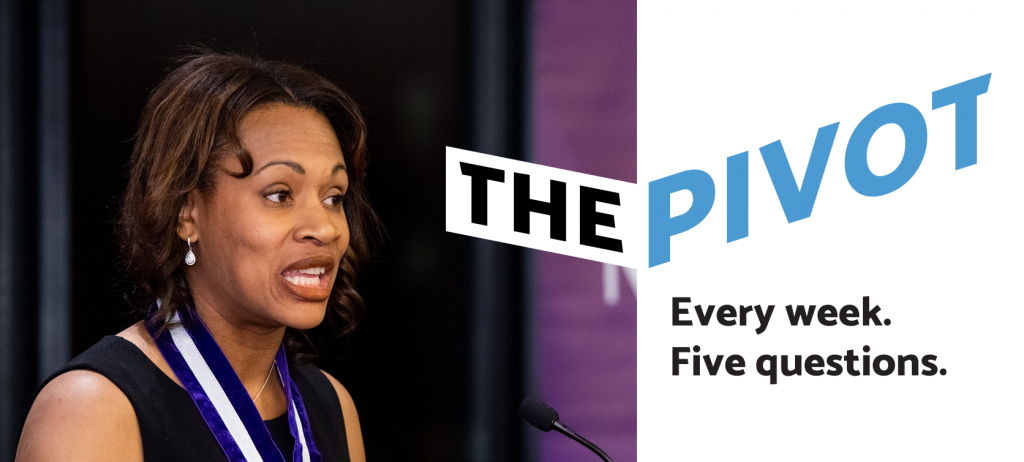The Pivot: Dr. Mercedes Carnethon

Dr. Mercedes Carnethon keeps people healthy with straightforward communication.

What’s your role in public health?
I am currently vice chair of Northwestern University’s Department of Preventive Medicine. I’m an alumna of UNC’s epidemiology program, where I earned a Master of Science in Public Health in 1998 and a Doctor of Philosophy degree in 2000.

Can you describe your focus area in one sentence?
Cardiovascular disease, diabetes, obesity and lung disease.
My focus has been on cardiovascular disease epidemiology since the outset of my career at UNC Gillings. I’ve recently expanded to include a focus on other leading causes of death, including lung disease.
My research team explores the independent and joint contributions of diet, physical activity and sleep on health and disease. As epidemiologists, we describe these behaviors in population subgroups defined by race, ethnicity, geography, socioeconomic status, gender and sexual orientation. An equally important aspect of my job is my contribution to postdoctoral training and faculty development. I received such outstanding mentorship when I was at UNC, and I am committed to paying it forward and doing the same for my trainees and junior colleagues.

What brought you to public health?
The idea of studying population patterns and trends in health was appealing to me. I liked the idea of investigating the causes and consequences of health behavior choices. I chose this field, rather than medicine, because of the broader impact that addressing public health challenges can have on the health of the entire population. In my role as an epidemiologist within academia, I get to experience the thrill of generating a hypothesis and finding the resources to test that hypothesis in the population. Doing so satisfies my innate curiosity about what leads to the development of disease and what helps keep people well.

How have you pivoted in response to the coronavirus pandemic?
Expertise in the area of epidemiology is now highly valued by the public. While I have essentially no training in infectious disease epidemiology — Shhh, don’t tell anyone! — my expertise in cardiovascular disease epidemiology is valuable because having cardiovascular disease predisposes those with COVID-19 to have worse outcomes. I’ve had the opportunity to look at patterns of severe COVID-19 in the population based on preexisting cardiovascular disease risk factors.
I would also like to use my expertise in health behaviors to identify behaviors that predispose someone to contracting the disease or to predict who will have the most severe outcomes. As a fairly unsophisticated scientist myself, I have challenged myself to communicate straightforward health messages to the public through multiple venues, including speaking with the media, testifying to Congress about COVID-19 disparities and helping primary schools to reopen safely.
Watch a January 2021 interview in which Dr. Carnethon speaks with MSNBC about the importance of “reinforcing basic messages” in order to prevent the spread of COVID-19.

Who are you when you’re at home?

Dr. Mercedes Carnethon
My family sees me solely as the project manager of the household — making sure everyone has food and an education — but I see myself as an aging athlete who wishes she could recapture the glory days she never actually had. I obsessively think about sports and engage in lots of recreational activities and games!
